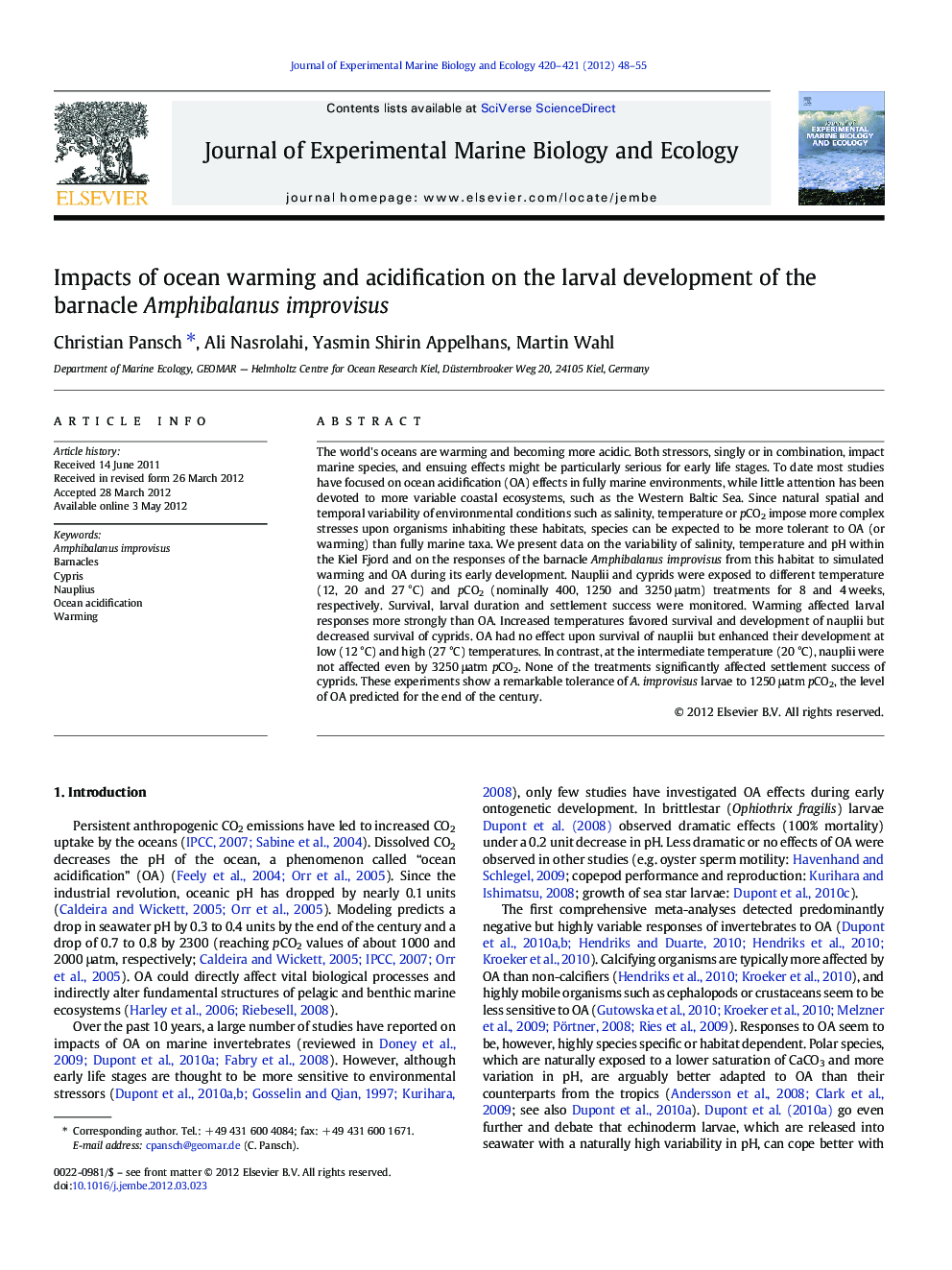| کد مقاله | کد نشریه | سال انتشار | مقاله انگلیسی | نسخه تمام متن |
|---|---|---|---|---|
| 4395979 | 1618447 | 2012 | 8 صفحه PDF | دانلود رایگان |

The world's oceans are warming and becoming more acidic. Both stressors, singly or in combination, impact marine species, and ensuing effects might be particularly serious for early life stages. To date most studies have focused on ocean acidification (OA) effects in fully marine environments, while little attention has been devoted to more variable coastal ecosystems, such as the Western Baltic Sea. Since natural spatial and temporal variability of environmental conditions such as salinity, temperature or pCO2 impose more complex stresses upon organisms inhabiting these habitats, species can be expected to be more tolerant to OA (or warming) than fully marine taxa. We present data on the variability of salinity, temperature and pH within the Kiel Fjord and on the responses of the barnacle Amphibalanus improvisus from this habitat to simulated warming and OA during its early development. Nauplii and cyprids were exposed to different temperature (12, 20 and 27 °C) and pCO2 (nominally 400, 1250 and 3250 μatm) treatments for 8 and 4 weeks, respectively. Survival, larval duration and settlement success were monitored. Warming affected larval responses more strongly than OA. Increased temperatures favored survival and development of nauplii but decreased survival of cyprids. OA had no effect upon survival of nauplii but enhanced their development at low (12 °C) and high (27 °C) temperatures. In contrast, at the intermediate temperature (20 °C), nauplii were not affected even by 3250 μatm pCO2. None of the treatments significantly affected settlement success of cyprids. These experiments show a remarkable tolerance of A. improvisus larvae to 1250 μatm pCO2, the level of OA predicted for the end of the century.
► We investigated warming and pCO2 effects on the early development of A. improvisus.
► The barnacle population investigated comes from a naturally acidified habitat.
► Warming affected larval responses much stronger than high pCO2.
► Larvae show a strong tolerance to pCO2 levels as predicted for the end of the century.
► Species from fluctuating habitats, may be able to better cope with climate change.
Journal: Journal of Experimental Marine Biology and Ecology - Volumes 420–421, 1 June 2012, Pages 48–55